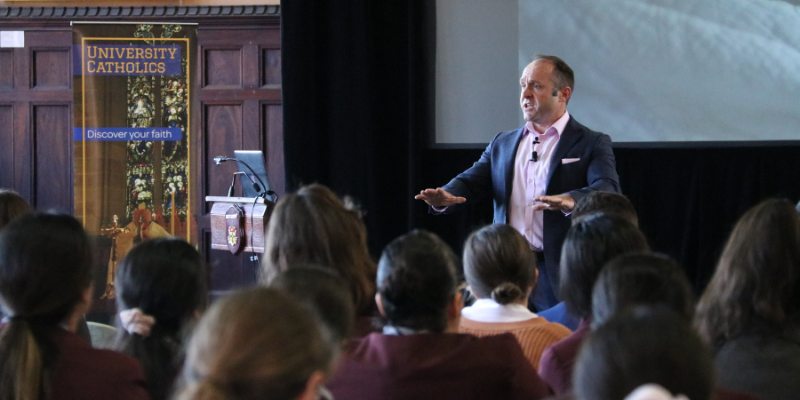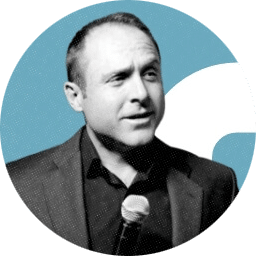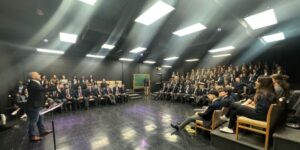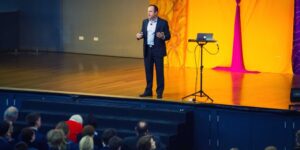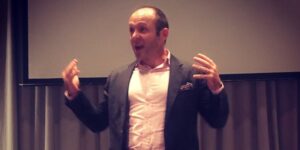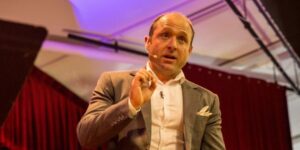In today’s episode, we delve into the thought-provoking insights from Abigail Shrier’s latest book, ‘Bad Therapy,’ exploring the pervasive fear gripping today’s students. Join us as we dissect Professor Jean Twenge’s observations on the externalized locus of control in the rising generation, shedding light on its implications for education and society at large. Discover the transformative power of Catholic faith in restoring internal locus of control and empowering students to navigate life’s challenges with resilience and purpose. Tune in for a deep dive into the intersection of philosophy, morality, and education, and equip yourself to foster a culture of inner strength and spiritual growth in your classroom.
Welcome Aboard
Hello there, my friend! Jonathan Doyle with you. Welcome to the Catholic Teacher Daily Podcast. Today we are going to be talking about another aspect of the new book by Abigail Shrier called Bad Therapy. It’s a fascinating book. I do recommend it to you. It is a kind of book I like, why? Because the books that I like are the books that take those sacred cows out of the back paddock and put them out of misery. I like those sorts of books because I feel that I’ve spent most of my professional life trying to do something similar by saying things that are controversial and difficult to hear. That book does a great job at that.
Locus of Control: Impact on Modern Youth

If you didn’t hear yesterday’s episode, there’s some more context for you. If you go back to yesterday’s episode, where we talked about the fear that is affecting our students. But today, we are sharing another quote again, in a similar vein. And it’s from Professor Jean Twenge. Some of you might be familiar with her. She’s seen as the world’s preeminent academic researcher in the field of narcissism. She’s done a huge amount of work on the narcissistic basis of modern culture and how it’s really shaped a generation of young people. I’ll just give you this quote first she says, “The rising generation has moved toward an external locus of control”.
If you’re not familiar with locus of control, I think most of you are, but very simply, locus of control is basically a system of belief where you either have an internal or an external locus of control. If your locus of control is external, your dominant belief is that external forces the world around you. Politics, economics, culture, exercises have a big impact on the direction of your life. Your life is inherently controlled by things outside of you.
If you have an internal locus of control, you have the belief that you can control things and that there’s a lot that you can do to act upon reality, to make it look more the way you want it to look. I guess it’s a little bit, the victim mentality is probably too strong but, the victim mentality would be there’s nothing I can do. There are all these huge, powerful forces out there in the world that I can’t do anything about. Therefore, I’m just going to call it up in a bowl.
“The rising generation has moved toward an external locus of control”.
Professor Jean Twenge Tweet
Societal Influences and Fear Dynamics

So yesterday I talked about the quote from Abigail Shrier’s book, Bad Therapy, where she was talking about fear being the dominant marker of this generation of young people emerging in our schools. That’s due to things like climate alarmism and a whole bunch of other factors, technological factors where they are very fearful about the future. Today we’ve got Professor Jean Twenge saying that a big marker as well is that their locus of control is externalized.
Previous generations like you look at what they call the great generation, the ones that survived were born around one of the great depressions, fought in World War II and emerged into the fifties. This was the can-do generation, they were workers, injurious, stoics. And they got a lot of stuff done because they believed that they could, they endured a lot.
The Resurgence of Marxism: Shaping Cultural Mindsets
It’s this basic belief that you can make stuff happen that you can create a life that you would like to have and she’s saying that’s what our students are doing. I wonder if it’s to do with the role of government, like there’s so much government intervention in life that young people are looking towards the state to provide everything that they think they want and it’s phenomenal to see the return of marxism.
It’s phenomenal to see so many young people and none of these ideas have the spectacular track record of killing hundreds of millions of people. That’s the only answer you’re ever going to get if you ask somebody, are they remotely serious about marxism, is that what we’ll do this time we’re going to do it properly.
This idea that the state or politics are going to meet all our needs or institutions, systems, or companies. These are really huge forces in culture. Because wherever you come down, this is going to be very significant because it’s going to shape a great deal about your experience of reality itself. There was a great article years ago in the Catholic Intellectual Journal Communio about the concept of drama.
Rediscovering Internal Drama: A Call to Individual Morality
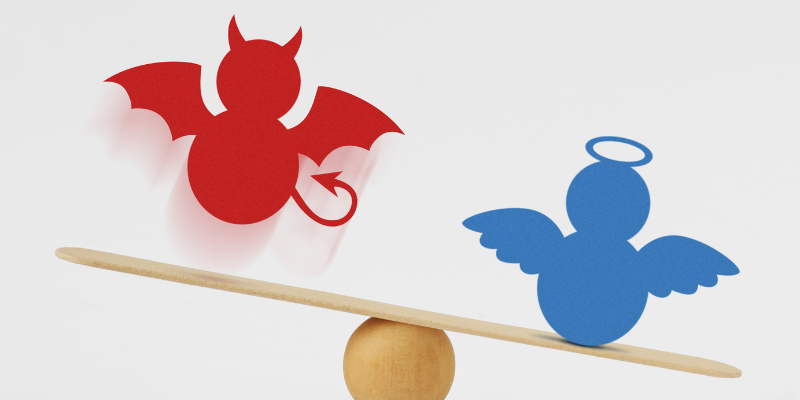
This article had a very big impact on me because it made the point that culturally, we have externalized the concept of drama where we look at reality TV shows as the best example. People have this interest in reality TV shows and they’ll sit there binge-watch a whole series because other people’s lives get really interesting. We want to externalize that we’re getting interested in all this stuff outside ourselves.
This Communio article really drove home the point that there is this incredible drama that takes place within our own lives. What drama is that? What’s the moral drama? The concept of morality itself presupposes the ideas of good and evil. That there is better and worse, that there is lighter and darker. There are some things that are good for us that some things are not good for, which takes us into philosophical anthropology and ontology. Questions about the very nature of what it means to be human. But this article in the communio was really clear. It was like, we’ve got to remind people that in our own lives we have this incredible daily drama.
I’ll give you a classic example. Since the accident, I have had 12 broken ribs. I’m in a lot of pain. And I can sense this strong thing in me at the moment where I’m gritty, where I’m in pain. I want everyone to leave me alone. So in my family life, I’ve got to be so careful because there’s this desire to encourage people to leave me alone a little bit. I’ve got a family, I’ve got to manage myself like there’s this moral component where yes, I’m in pain. Yes, I’ve got reasons to be a little grumpy, but I don’t get to just weaponize it.
Role of Catholicism in Empowering Individuals

Let me tie all this together. What the faith in the Catholic fight is going to do is, it’s going to restore a lot of the drama of life to the individual context. The relationship between the individual and themselves is the relationship between the individual and God. And so rather than these great external forces that were just puppets of. The Catholic life is a life of internal drama of moral battle, moral combat. And that we can shape ourselves. We can shape our lives in significant and important ways.
I think Catholicism gives us our power back. Probably one of the reasons that the Marxists hated Catholicism so much. James Lindsay was talking about this the other day and said they wanted things about the capital of Catholicism. Is that it won’t bend the needs of the state. That ultimately, a committed Catholic basically honors forces and powers way beyond the state. So the real drama is this internal drama they’re all living through every single day of our own moral and spiritual lives.
Cultivating Internal Locus of Control in Catholic Education
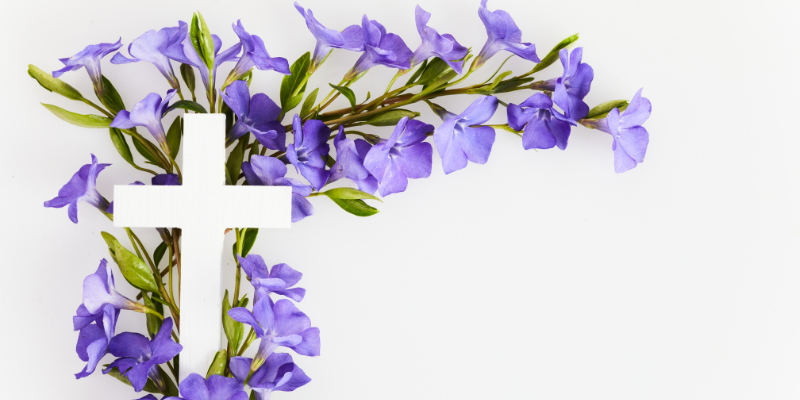
So in Catholic education, one of the things that we’ve got to be thinking about is reminding and forming our students in this internal locus of control. Now, we see it sometimes right down when kids fight or there’s like some kids you can’t treat people this way, and you’re responsible for how you behave. We’re okay with it on the pastoral level. Sometimes I think we get it. We intuitively teach kids. You’re up there’s other people around, and you’ve got to be respectful of that. But I think there’s a whole bigger dimension here. The life of virtue, and we’ll talk about that in a couple of days in another episode.
Integrating Faith Practices in Student Development
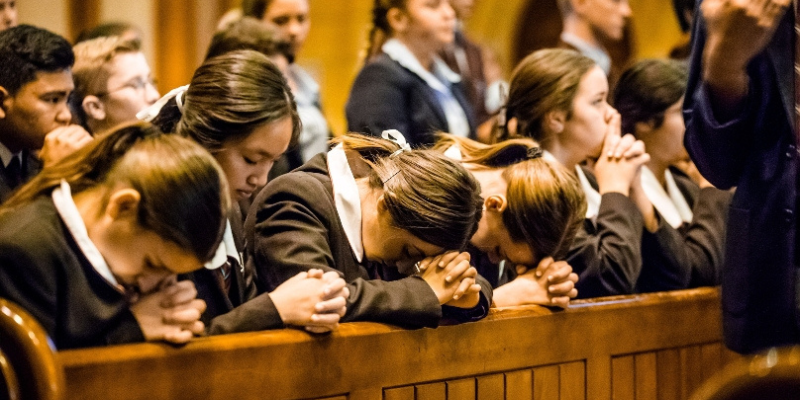
We are helping our students realize that the real locus of control is internal not external. That the most significant battles we face are not so much the culture around us per se, but the internal battles. Helping our students realize that through prayer and through the sacraments and through practicing their Catholic faith. They can actually get some power back.
With this real paradox, there’s a lot of nuance, because I’m not saying that it’s not a prosperity gospel. It’s not that we’re just going to tweak reality and get God to give us what we want, it’s different to that. This sense of yeah, the world around me has all these problems, but I’m still responsible for me, and I’m still responsible for how I show up in the world.
I know that God has the final victory, and I know that I don’t have to give into fear because he’s redeemed me. He’s got me. His spirits with me. I’m going to be okay. It’s going to be difficult. It’s going to be hard, but there’s a lot to this episode.
Addressing Fear through Spiritual Resilience
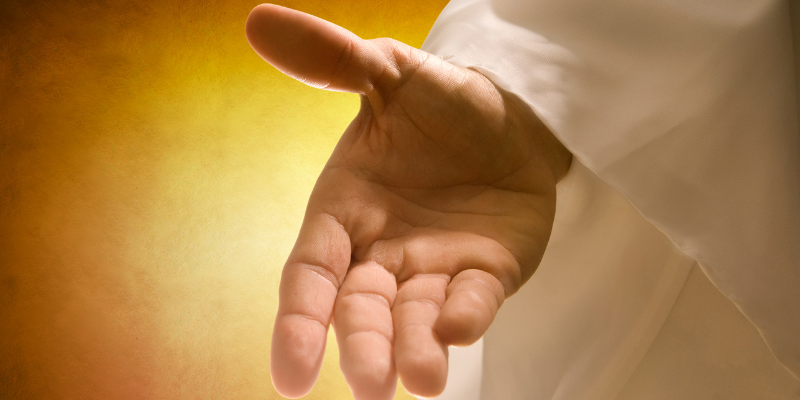
I hope I haven’t lost you but I think what I’m getting at is that students are more fearful. They’re externalizing their locus of control. And deeply understood and practiced Catholic faith will help them with fear, and it will help them to get some power back in their own lives. One thing is to know that you have the Holy Spirit indwelling you. Like any baptized Catholic has the spirit of indwelling. That’s a big deal.
We don’t have to be so afraid because even if we lose our lives, we’re carried, God’s got us. He’s just got us. I’m going to have to be afraid of the future. I’m just preaching to myself now. But I hope that you can begin to think about some of these deep ideas and begin to share them with your students. We are going to finish there.
Closing
All right. Please make sure you’ve subscribed. I’d love for you to share this with other teachers, and everything’s on the website: jonathandoyle.co. You can find everything there. And you and I are going to talk again tomorrow. God bless you, my friend. I will speak soon.
